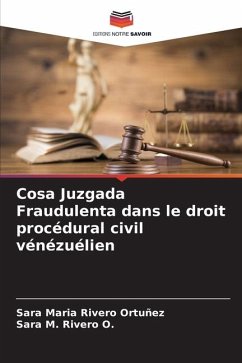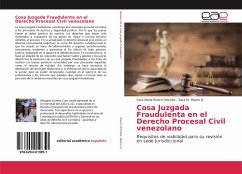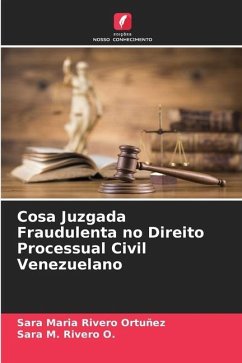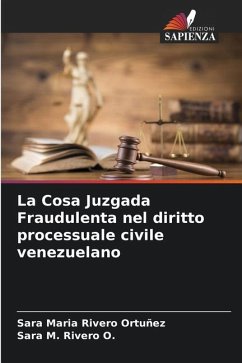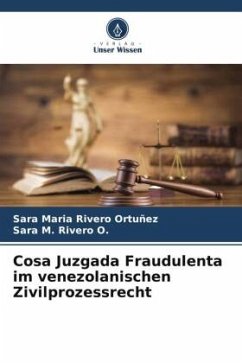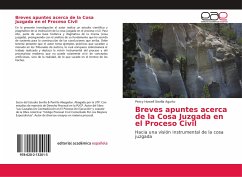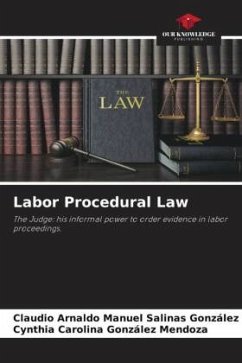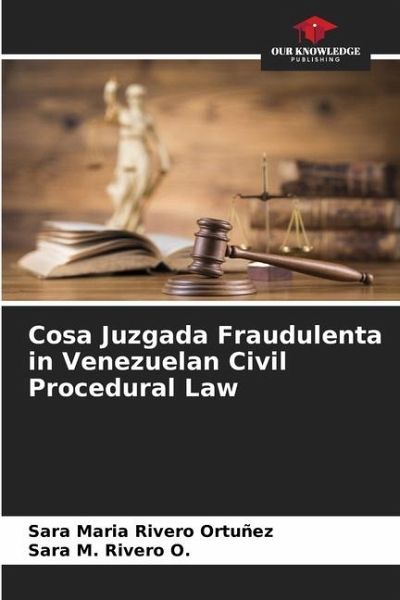
Cosa Juzgada Fraudulenta in Venezuelan Civil Procedural Law
Versandkostenfrei!
Versandfertig in 6-10 Tagen
41,99 €
inkl. MwSt.

PAYBACK Punkte
21 °P sammeln!
Fraudulent res judicata constitutes a procedural anomaly contrary to the principles of justice and legal certainty. Therefore, judges have the legal duty to restore the rights that have been violated to any of the parties in litigation and even third parties outside the process. At present, civil procedural law as an instrumental (adjective) law is nourished by constitutional law, which has created mechanisms in favour of those administered and jurisdictional bodies that tend to guarantee the ultimate aim of any process: justice, protected by the guarantee of due process. Consequently, a study...
Fraudulent res judicata constitutes a procedural anomaly contrary to the principles of justice and legal certainty. Therefore, judges have the legal duty to restore the rights that have been violated to any of the parties in litigation and even third parties outside the process. At present, civil procedural law as an instrumental (adjective) law is nourished by constitutional law, which has created mechanisms in favour of those administered and jurisdictional bodies that tend to guarantee the ultimate aim of any process: justice, protected by the guarantee of due process. Consequently, a study is made of the requirements that would make it viable and possible for judges to determine the existence of fraudulent res judicata, for the purpose of restoring the violated legal rights through expeditious procedural means such as the appeal for annulment. However, it is necessary to attenuate the dispositive principle and the elimination of the expiry of the time limit of the action in order to be able to recognise third parties who, after days, months or even years, become aware of the fraudulent res judicata ruling in the exercise of their claims.



